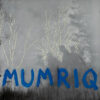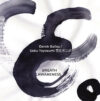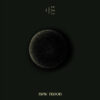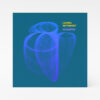
French pianist and composer Melaine Dalibert is known for his highly personal compositional strategies that experiment with algorithms and other mathematical concepts such as fractals, but his music combines emotion and sharp logic. Dalibert’s new suite for solo piano and his eighth album, Magic Square, refers to a mathematical game by the same name and is a fantasy journey, epigrammatic and tinged melancholy that was born from and designed for introspection.
Journey or movement lies at the heart of Magic Square, but not necessarily a physical one. It is the movement of the imagination, drifting off while looking through a window, past the roofs and telephone wires, or to a blue sky studded with distant clouds. Magic Square attempts to be a soundtrack of our brief lapses in attention to reality, our longings for something unreachable. Dalibet’s music was born of and designed for dreaming.
Dalibert composed eight short and beautiful pieces, still ringing with rich pathos. The slow, simple chords of the opening piece «Prélude» set the gentle, caressing atmosphere, while the following songs, the minimalist «Five» suggests a nostalgic, pop-like structure, and the restless lullaby on «Ritornello».
«Choral» and «More or Less» sail into Feldman-esque sparse, meditative and tender territories, offering space between its undecorated melodies and providing time to think. The most beautiful piece here, «A Song», is a heartfelt tribute to Ryuichi Sakamoto and articulates a reserved, introspective and most beautiful melody that brings to mind the proto-ambiance of Erik Satie, and, obviously, Sakamoto’s solo piano works. Dalibert balances these pieces with the more complex and energetic “Perpetuum Mobile”, and the last, the title piece that serves as a wake-up call to the real world, with its sounds of rain streams, letting us know that this captivating, dreamy journey is over.
Eyal Hareuveni
Melaine Dalibert (p)



































